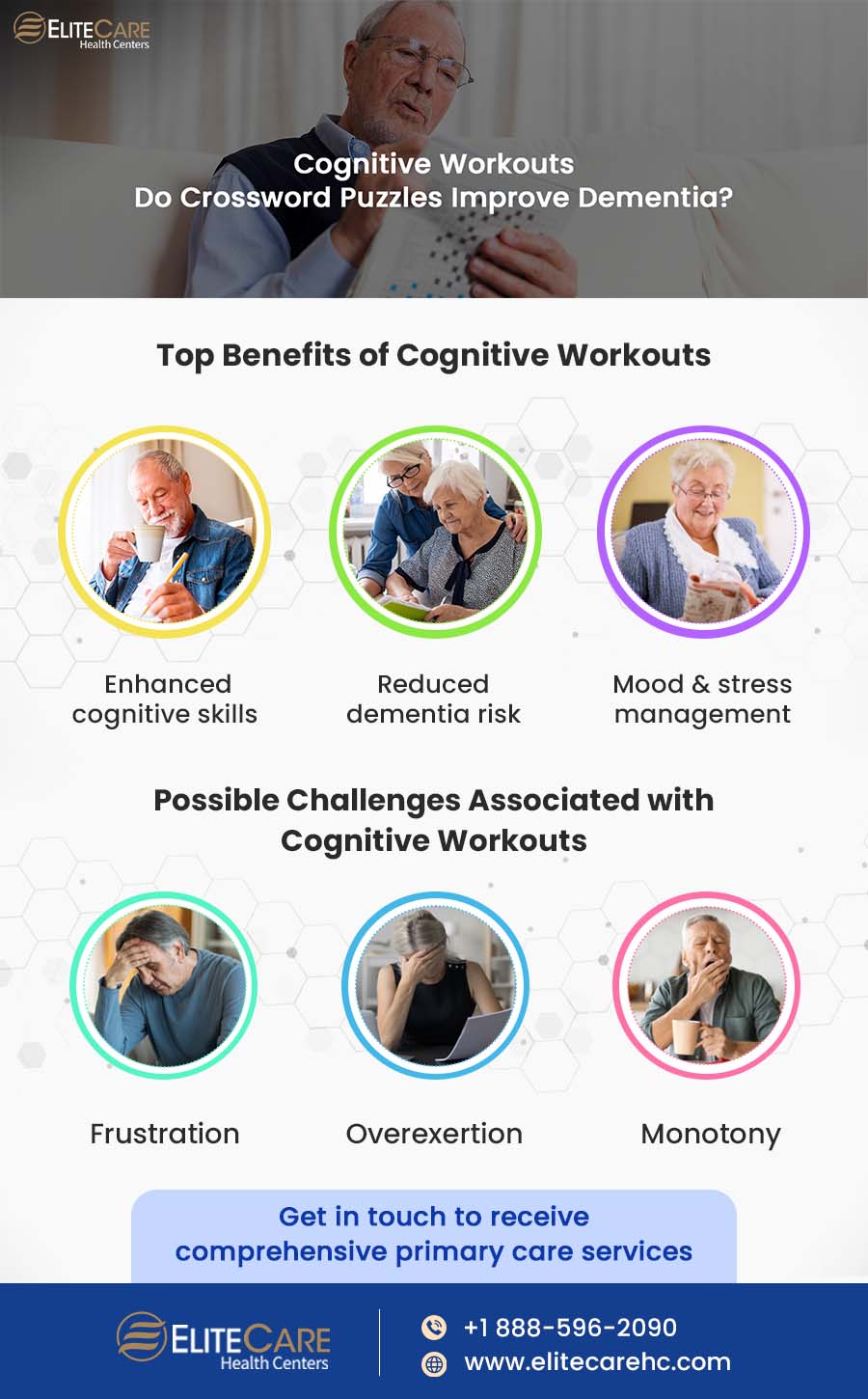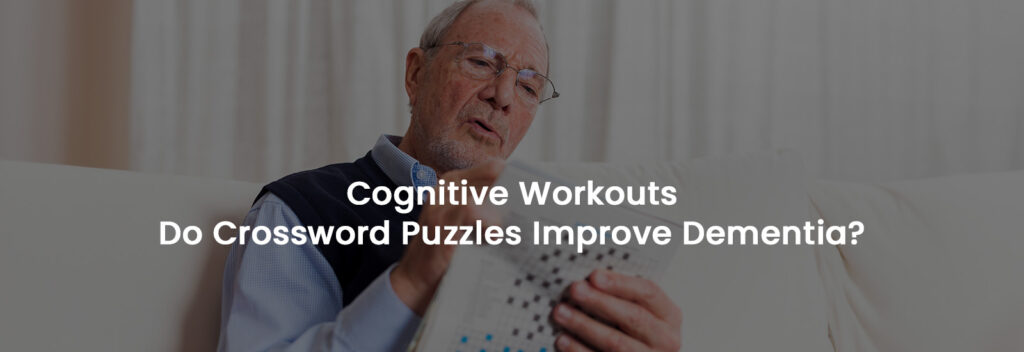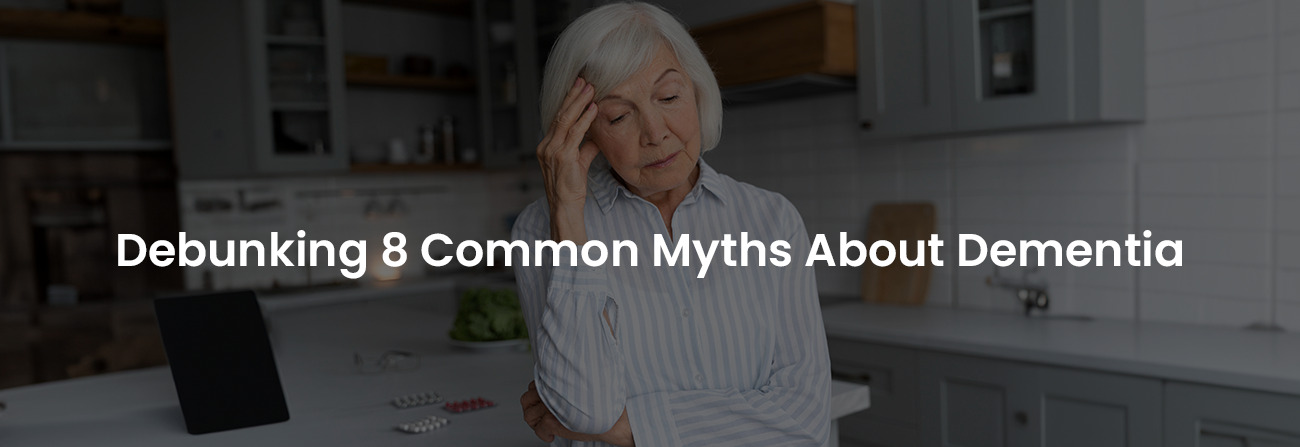
Dementia is challenging, affecting memory and cognition, particularly in our senior years. In this exploration, we ask a vital question: Can engaging in mental exercises like crossword puzzles protect against dementia?
This blog post will dive into dementia’s complexities, the potential of cognitive activities such as crossword puzzles, and the emerging field of brain training. For us at EliteCare Health Centers, a leading Florida medical clinic, this blog post seeks to empower seniors to take proactive steps in preserving their cognitive health through evidence-based approaches like mental exercises.
What Happens in Dementia?
Dementia is a condition that profoundly affects cognitive health, especially in older adults. It’s like a fading picture album, slowly erasing precious memories and the ability to think clearly.
This condition doesn’t just affect individuals; it touches everyone around them, making daily life challenging. Unfortunately, there’s no cure for dementia. That’s why it’s crucial to intervene early and manage it effectively.
The Power of Brain Training
In recent years, a promising trend has emerged in the realm of cognitive health – brain training. It’s akin to a workout regimen for the mind, aimed at preventing conditions like dementia. Brain training involves mental exercises and activities to stimulate and enhance cognitive functions.
The idea behind this approach is that just as physical exercise strengthens the body, mental exercises can fortify the mind. For seniors concerned about dementia, this is particularly significant. Regular mental activities might hold the key to cognitive enhancement and memory preservation. While it’s not a magical cure, brain training offers hope for dementia prevention.
Crossword Puzzles and Cognitive Health
Crossword puzzles have gained popularity as a cognitive activity among seniors concerned about dementia. Research suggests they offer mental exercise, helping with memory, vocabulary, and problem-solving – vital aspects of cognitive health.
A Promising Link
Part of a Bigger Picture
Crossword puzzles are an enjoyable way to stay mentally active. However, they’re just one piece of the puzzle in senior care services. Variety is essential to maintain cognitive health. Including Sudoku, memory games, and artistic activities in your routine provides a more holistic cognitive workout, further emphasized by health care centers‘ expertise.
While crossword puzzles have their merits, they’re most effective when combined with other mental exercises, forming a key part of senior care services. The following sections explore diverse activities and strategies for comprehensive brain health.
Beyond Crossword Puzzles
In the journey to maintain cognitive health and guard against dementia, crossword puzzles are just one piece of the puzzle. While they offer an engaging mental workout, it’s crucial to diversify cognitive activities for comprehensive brain health.
Sudoku: Numbers for Your Brain
Sudoku, the number-based puzzle, is an excellent choice. It sharpens logic and pattern recognition. Moreover, it’s accessible in newspapers, puzzle books, and online, making it convenient for seniors.
Memory Games: Exercise for the Mind
Memory games, like card matching or recalling sequences, target memory enhancement. They can be enjoyed solo or with friends and family, adding a social element to cognitive training.
Artistic Pursuits: Creativity and Cognition
Engaging in artistic activities, such as painting, drawing, or crafting, sparks creativity and challenges the mind. It encourages problem-solving and spatial awareness, fostering cognitive well-being.
Why Variety Matters
A varied cognitive workout ensures that different aspects of your brain are engaged. Think of it as a balanced diet for your mind. Just as a diverse range of nutrients supports physical health, a mix of puzzles, memory games, and artistic pursuits nourishes cognitive health.
Seek Guidance from a Primary Care Physician
It’s always advisable to consult a primary care physician for guidance. They can assess your overall health and provide personalized recommendations, considering your medical history and specific needs.
Visit Your Local Health Care Clinic
Health care clinics, like EliteCare, aim to improve senior well-being. They provide guidance, resources, and support for maintaining cognitive health, ensuring seniors lead fulfilling lives.
Cognitive Reserve and Its Role
Cognitive reserve, often referred to as our “brain bank,” is a concept crucial in understanding dementia prevention. The brain can resist damage due to mental stimulation and education history. Think of it as a savings account for your brain. The more you deposit in the form of mental exercise, the more protected your cognitive health is against potential threats like dementia.
How Cognitive Reserve Works
Imagine two individuals with similar brain structures. One has spent a lifetime in intellectually stimulating environments, engaging in complex mental activities, while the other led a mentally less active life. When dementia-related changes begin to affect their brains, the person with a higher cognitive reserve will likely show fewer outward signs of dementia. Their “brain bank” can compensate for the damage, maintaining cognitive function for longer.
Building Cognitive Reserve
Building cognitive reserve isn’t something that happens overnight. It’s a lifelong process that involves consistently challenging your brain. Engaging in various mental exercises, such as crossword puzzles, Sudoku, memory games, and artistic pursuits, contributes to this reserve.
Balancing Act: Challenges and Benefits
Engaging in cognitive exercises is a promising path to maintaining cognitive health, but it’s not too challenging. Let’s explore the delicate balance between the benefits and potential downsides:
The Benefits
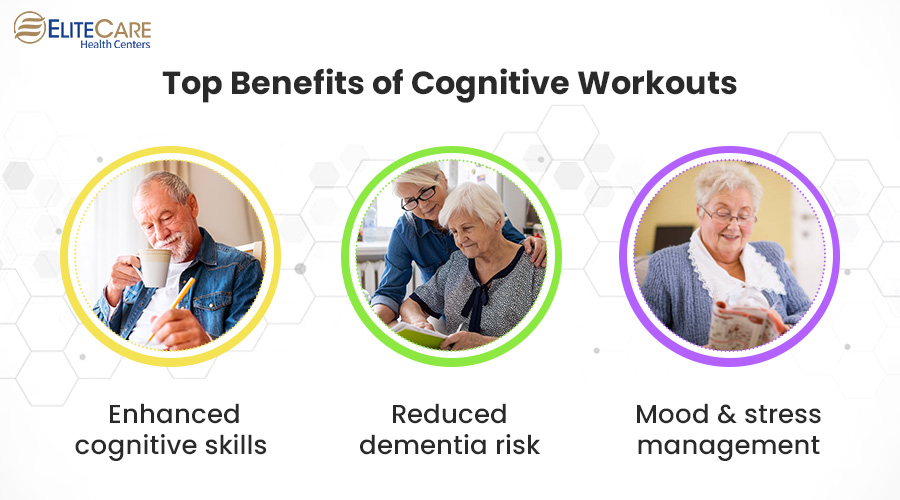
1. Enhanced Cognitive Skills: Cognitive exercises like puzzles and memory games sharpen your mental faculties, improving memory, problem-solving, and critical thinking.
2. Reduced Dementia Risk: Studies suggest that regular mental stimulation can reduce the risk of dementia, offering a layer of protection for your cognitive health.
3. Mood and Stress Management: These activities can be enjoyable, reducing stress and enhance overall mood.
The Challenges
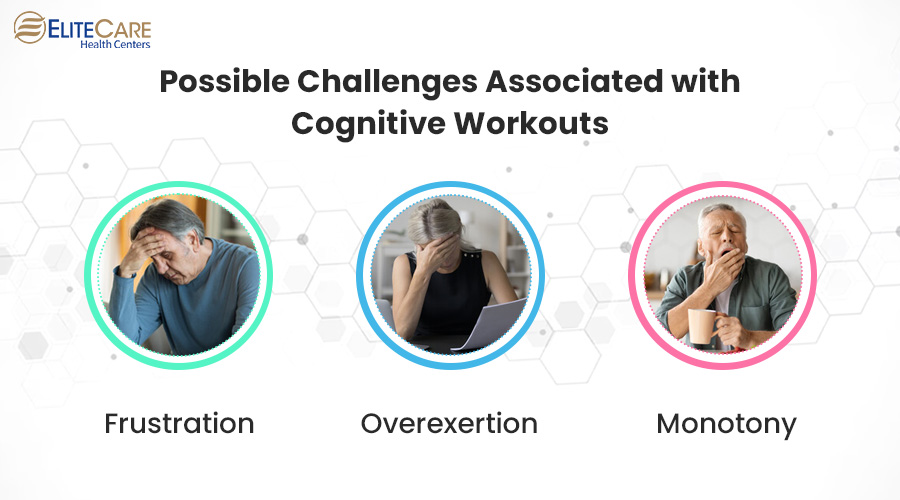
1. Frustration: Cognitive exercises can sometimes be frustrating, especially if they’re too challenging. It’s important to choose activities that are engaging but not overly stressful.
2. Overexertion: Striking a balance is key. Overexerting your brain with excessive mental exercises can lead to burnout and mental fatigue.
3. Monotony: Repeatedly doing the same activities might lead to redundancy. It’s essential to diversify your cognitive exercises to keep them interesting.
Finding Your Balance
The key is to find the sweet spot that works for you. Tailor your cognitive exercises to your interests and abilities. If crossword puzzles are your passion, by all means, indulge. If you prefer artistic pursuits or Sudoku, go for it. Variety keeps things fresh.
Consider consulting a healthcare professional for guidance, particularly regarding routine physical exams. They can offer insights into your cognitive health, ensuring your chosen activities align with your overall well-being.
Remember, it’s not about pushing your brain to its limits but nurturing it with enjoyable challenges. Maintaining cognitive health is a personal journey, and finding the right balance is the key to success.
Personalized Approaches to Brain Health
In the pursuit of a healthy mind, one size does not fit all. Personalized approaches to brain health are the key to effective dementia prevention.
- Tailored Activities: Seniors should explore cognitive exercises that align with their interests and abilities. While crossword puzzles and Sudoku appeal to many, others may prefer memory games, painting, or learning a musical instrument. Engaging in activities you enjoy ensures long-term commitment.
- Variety Matters: Just as a diverse diet benefits physical health, various mental exercises help cognitive well-being. Switching between different activities prevents monotony and stimulates multiple parts of the brain. A well-rounded approach can lead to better results.
- Individual Challenges: Each person’s cognitive reserve and abilities are unique. Tailored brain training allows individuals to challenge themselves at their own pace. Setting achievable goals and gradually increasing difficulty can be highly effective.
- Embrace Technology: Personalized brain training apps have gained popularity for their adaptability. These apps adjust to your skill level, providing targeted exercises to strengthen weak areas. Early detection techniques integrated into some apps can track cognitive changes over time, offering valuable insights.
- Regular Monitoring: Consistent self-assessment and monitoring are essential. Keeping track of your cognitive health can help identify any changes early on, allowing for timely intervention if needed.
- Consult with Experts: Primary care centers like EliteCare offer valuable guidance. Scheduling routine check-ups with a primary care physician can help seniors monitor their cognitive health, receive recommendations, and stay informed about the latest advancements in dementia prevention.
Remember, personalized approaches to brain health are about enhancing your quality of life. By aligning your activities with your interests and abilities, you can nurture your cognitive garden in a natural and enjoyable way.
The Bottom Line
Protecting your cognitive health against dementia is multifaceted. Engage in diverse brain-stimulating activities like art, games, or language learning. Consistency is key; set aside daily time for mental challenges. Personalize your approach, considering apps tailored to your needs.
Early detection tools can be invaluable. Lastly, maintain balance; progress takes time, so don’t be discouraged by initial challenges. For comprehensive cognitive support and regular check-ups, turn to EliteCare Health Centers.
- Tags:annual physical exambrain healthcognitive healthcognitive workoutselite health and wellnesselite healthcareelite medical centerflorida medical clinichealth care centerhealth care clinichealth centers near memental exercisesneurologyonline doctor consultationprimary care centersprimary care physicianroutine physical examsenior care services
